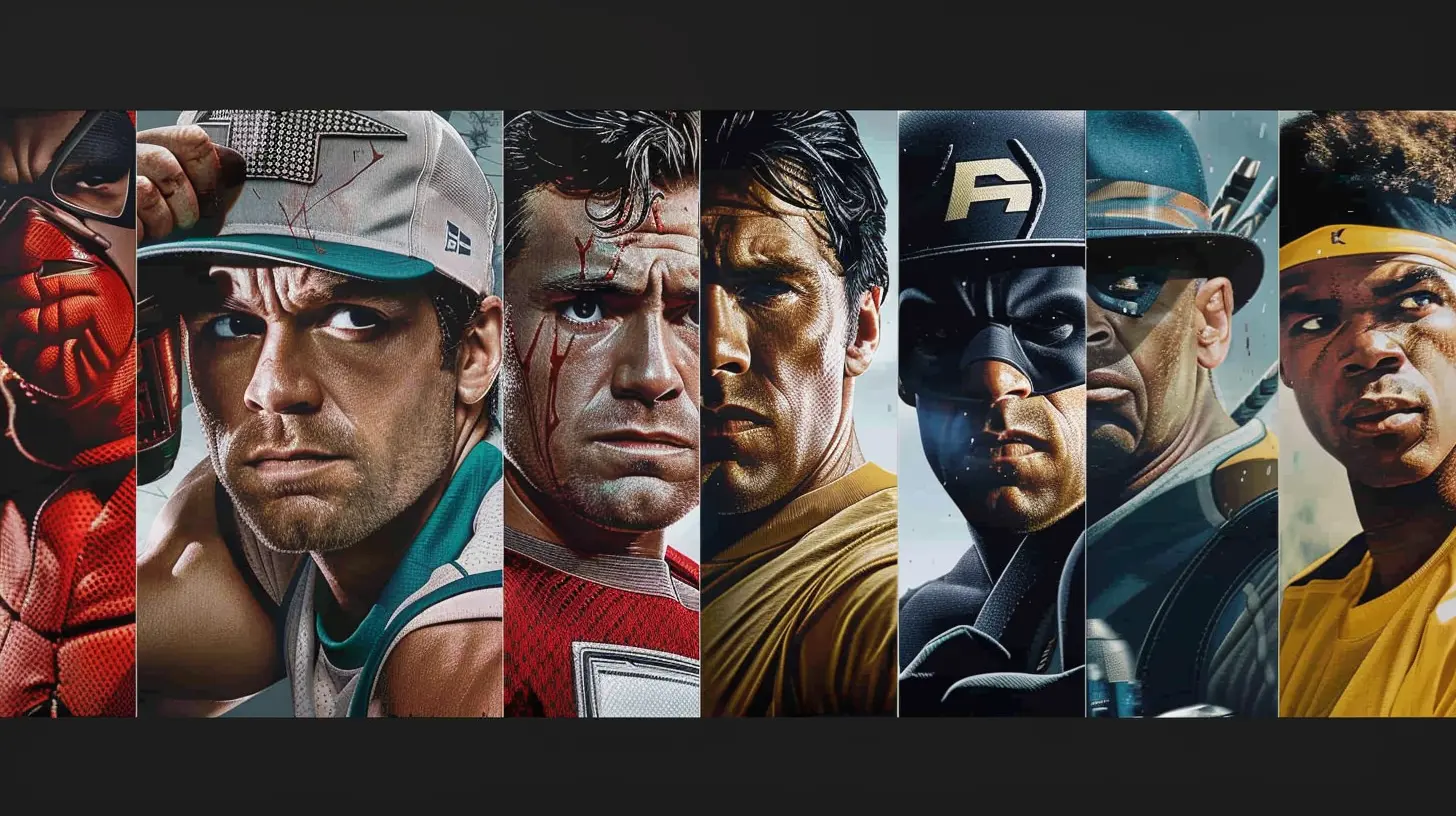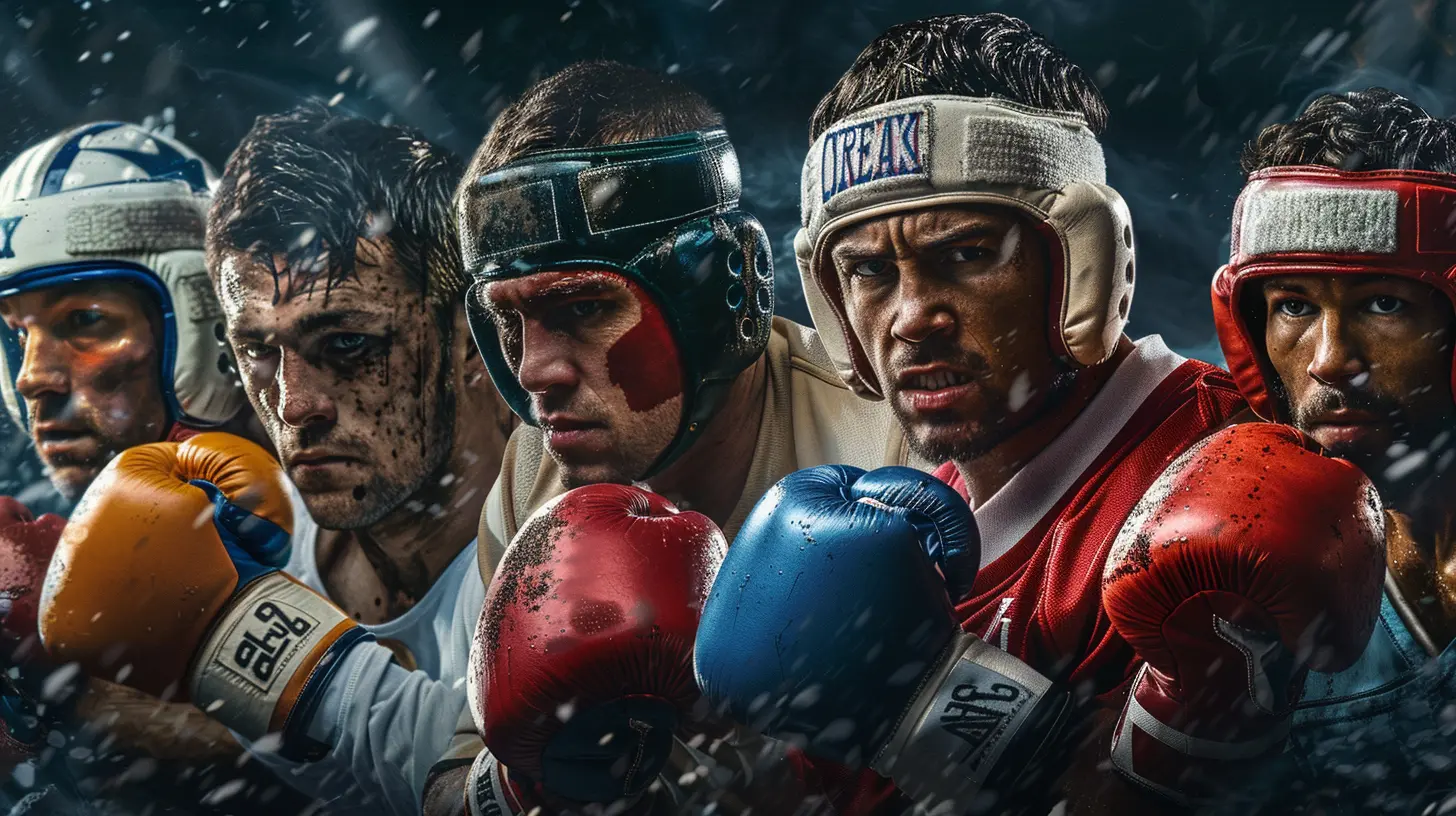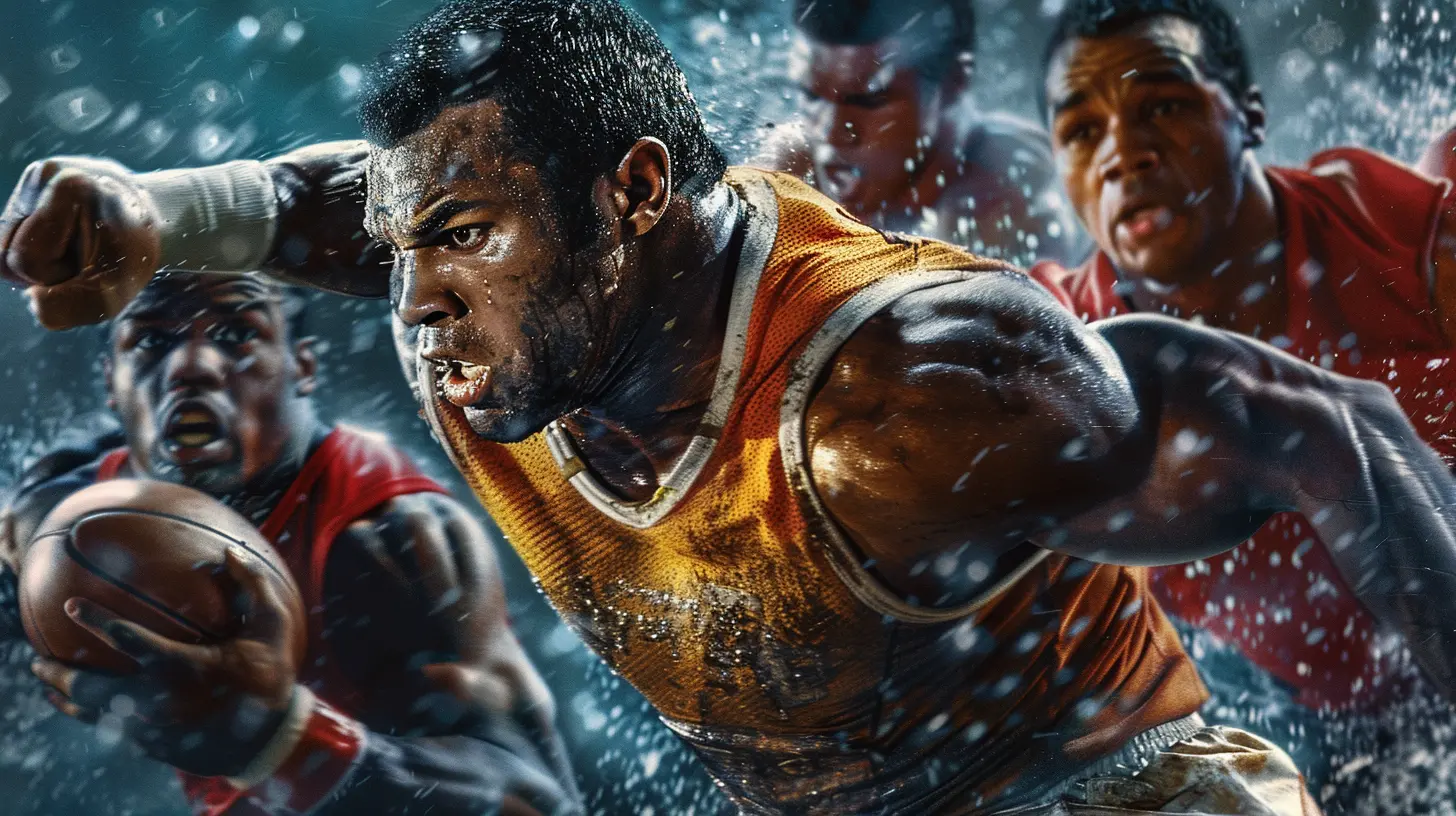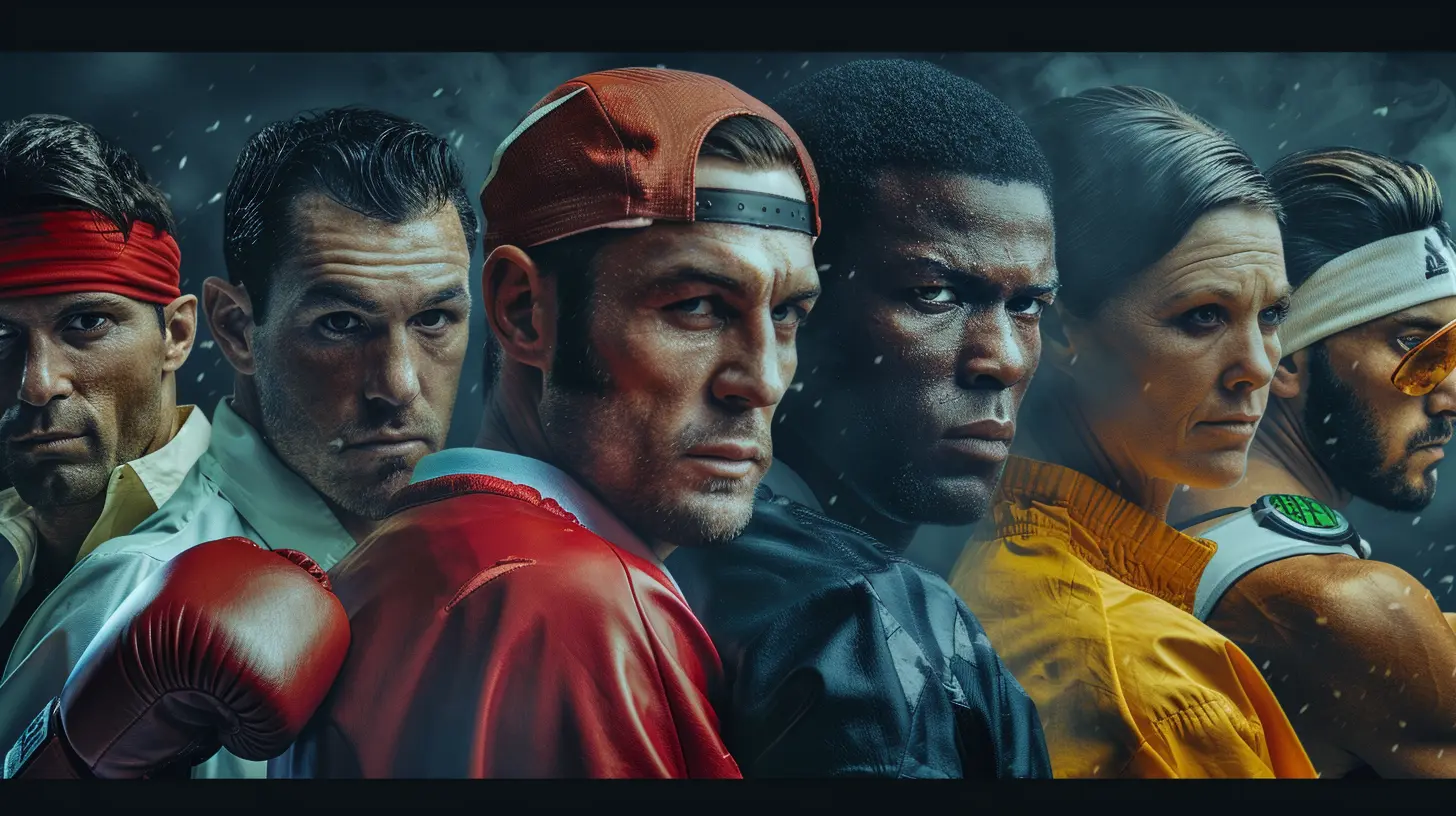The Evolution of Sports Heroes in Cinema: From Classic to Contemporary
14 November 2025
Sports and cinema—two powerful storytelling mediums that have captivated audiences for generations. When these two worlds collide, they create unforgettable tales of triumph, perseverance, and the human spirit. From iconic underdogs to legendary champions, sports movies have evolved dramatically over the years, shaping how we view athletes on the big screen.
But how exactly have these cinematic sports heroes changed over time? What makes today's sports films different from the classics of the past? Let’s dive into the evolution of sports heroes in cinema, from the golden age to today’s modern portrayals.

The Golden Age of Sports Films: Larger-Than-Life Heroes
In the early days of sports cinema, the genre was all about glorifying larger-than-life figures. These movies often focused on the sheer greatness of an athlete, portraying them as invincible and heroic.Think of films like Knute Rockne, All American (1940), where Ronald Reagan’s famous “Win one for the Gipper” speech became a cultural phenomenon. These movies weren't about internal struggles or deep emotional arcs—rather, they were about celebrating the unbeatable spirit of an athlete.
During this era, sports heroes were portrayed as near-mythological figures. They weren’t just athletes; they were symbols of determination and excellence that audiences could aspire to but never truly relate to. They lacked flaws, real-world struggles, and deep personal conflicts—something that would slowly change in the decades to come.

The Rise of the Underdog: Sports Films Take a Human Approach
The 1970s and 1980s ushered in a new era for sports movies—one that shifted away from untouchable legends and focused more on relatable, underdog characters. Enter Rocky (1976), the ultimate underdog story.Sylvester Stallone’s Rocky Balboa wasn’t a superstar—he was a struggling boxer from Philadelphia trying to prove himself. He wasn’t the best, but he had heart, and that resonated deeply with audiences. Rocky’s journey was about more than winning; it was about perseverance, self-belief, and personal growth.
This trend carried into the 80s with films like Hoosiers (1986) and Field of Dreams (1989). These movies focused on ordinary individuals overcoming obstacles both on and off the field. While the sports elements were still crucial, the emotional depth of the characters became just as important as their athletic prowess.

The 90s: Heartfelt Drama and Inspirational Stories
The 90s took the emotional aspects of sports films to the next level. These weren’t just about underdogs anymore—they were about ordinary people tackling extraordinary challenges. We saw heartfelt drama interwoven with powerful sports narratives, creating some of the most inspirational films of all time.Movies like Rudy (1993) and Remember the Titans (2000) showcased not just individual perseverance, but also themes of teamwork, racial unity, and social struggles. Rudy wasn’t about the best football player, but about the player who never gave up. Remember the Titans wasn’t just about football—it was about overcoming racial divisions in America.
This period also saw an increase in family-friendly sports films that inspired younger audiences. The Sandlot (1993) captured the magic of childhood baseball, while Space Jam (1996) blended sports with animated fun, making basketball exciting even for those who weren’t die-hard fans.

The 2000s: Realism and Biographical Sports Films
As we entered the 2000s, sports films began to lean toward realism. Instead of fictional characters, Hollywood started focusing on real-life athletes and their inspiring journeys.Movies like Ali (2001), Seabiscuit (2003), and The Blind Side (2009) were all based on true stories, showcasing the struggles and triumphs of real sports figures. These films connected with audiences on a deeper level because they weren’t just well-crafted stories—they were windows into actual historical events.
Athletes were no longer portrayed as invincible superheroes. Instead, we got to witness their vulnerabilities, struggles, and personal challenges. Whether it was Million Dollar Baby (2004) tackling the harsh realities of boxing or Friday Night Lights (2004) showcasing the pressure of high school football, sports movies became raw, emotional, and deeply personal.
Modern Sports Films: Complex Characters and Social Commentary
Fast forward to today, and sports films have become more than just inspiring stories—they've become platforms for important conversations. Modern sports movies don’t just focus on the game; they dive into issues like race, gender, mental health, and social justice.A perfect example is King Richard (2021), which tells the story of Venus and Serena Williams’ father, Richard Williams. This isn’t just a tennis movie—it’s a film about determination, parenting, and breaking barriers in a predominantly white sport.
Similarly, Creed (2015) breathed new life into the Rocky franchise. While still delivering the emotional power of a classic underdog story, it also addressed themes of legacy, identity, and personal struggle in a way that felt fresh and contemporary.
Women in Sports Films: Breaking Barriers
One of the most exciting shifts in sports cinema has been the rise of female-driven sports films. For the longest time, sports movies were dominated by male protagonists. But recent years have changed that, putting strong, complex female characters at center stage.Movies like Bend It Like Beckham (2002) and A League of Their Own (1992) helped pave the way, but today’s films take it even further. I, Tonya (2017) gave us a raw, unfiltered look at the life of figure skater Tonya Harding, while Hustle (2022) featured Queen Latifah breaking stereotypes in a male-dominated coaching world.
These films highlight the struggles female athletes face, from sexism to lack of opportunities, making them an essential part of the evolving narrative in sports cinema.
The Future of Sports Films: What's Next?
So, what’s the future of sports films? With advancements in storytelling, technology, and the growing influence of social issues, the genre will likely continue to evolve in exciting ways.Streaming platforms have already changed the game, allowing for more niche sports stories to be told outside of traditional Hollywood structures. Documentaries like The Last Dance (2020) and Untold (2021) have proven that audiences crave real, raw sports storytelling.
Additionally, the rise of international stories means that we’ll likely see more diverse sports films that go beyond just American football, baseball, and basketball. Soccer, cricket, and even esports could play a bigger role in shaping the future of this genre.
Final Thoughts
Sports movies have come a long way—from glorified super-athletes to deeply human stories of struggle, resilience, and passion. They’ve evolved to reflect society’s changing perspectives on sports, athletes, and the larger issues surrounding them.Whether it’s an underdog story, a biopic of a real athlete, or a socially conscious sports drama, one thing is clear—sports films have a timeless appeal. They remind us that greatness isn’t just about talent; it’s about heart, determination, and the will to push forward, no matter the odds.
So, the next time you watch a sports movie, pay attention—not just to the game, but to the story being told. Because sports, at their core, are not just about winning or losing—they’re about people, their journeys, and the lessons they teach us along the way.
all images in this post were generated using AI tools
Category:
Sports MoviesAuthor:

Everett Davis
Discussion
rate this article
1 comments
Kane Bass
Who knew our sports heroes would go from chiseled, mustached legends in the '80s to today's six-packed, selfie-loving superstars? Just remember, whether it’s Rocky or a TikTok star, they all have one thing in common: training hard and avoiding a good slice of pizza on cheat day!" 🍕💪
November 17, 2025 at 4:22 AM

Everett Davis
Absolutely! The evolution highlights not just changing physiques but also the shifting cultural values around fame and fitness. Whether in the ring or on social media, dedication remains a timeless trait. 🍕💪


